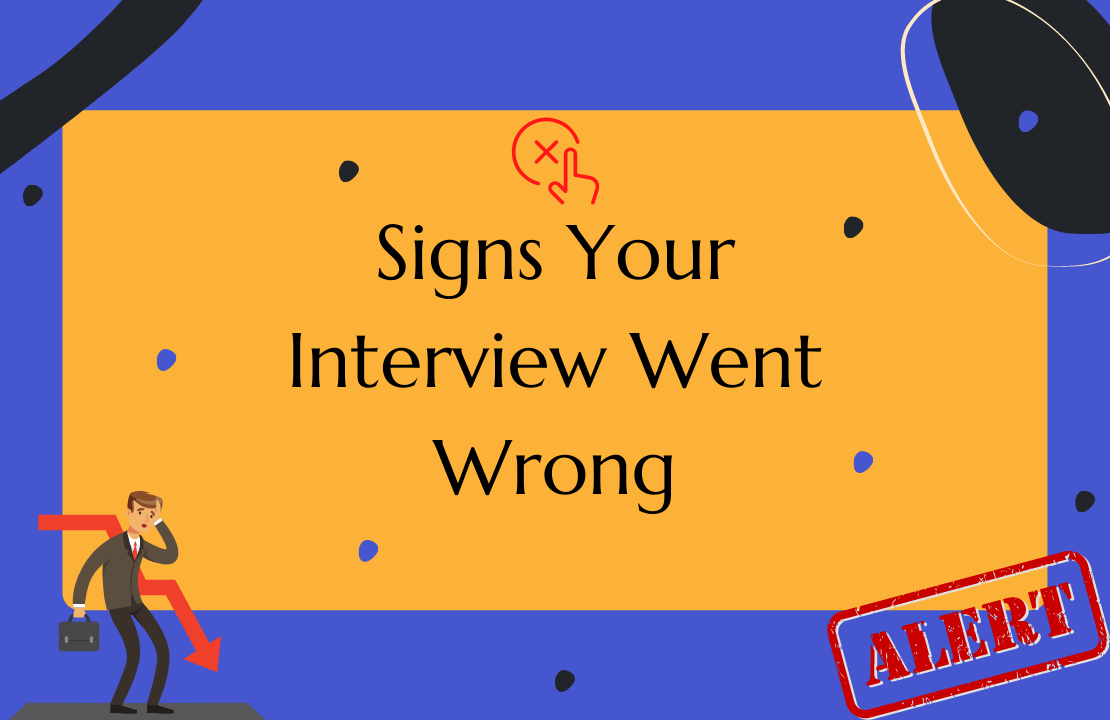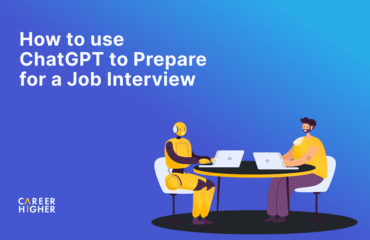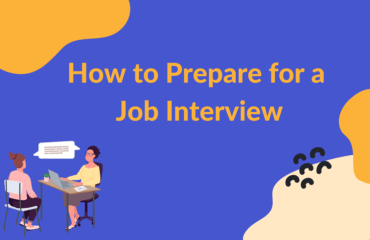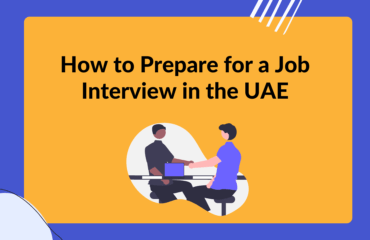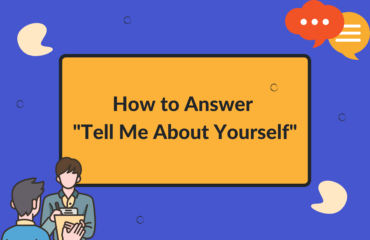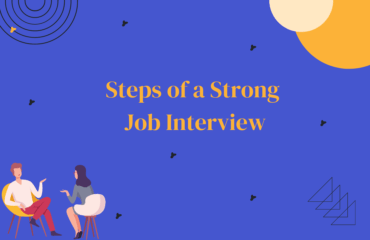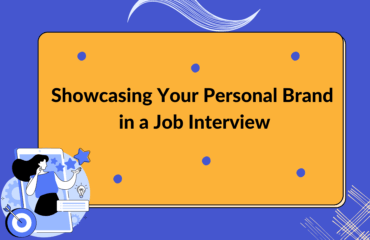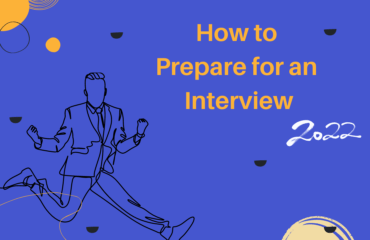Table of Contents
- 1) The interview took less time than anticipated
- 2) The interviewer seemed disinterested
- 3) The interviewer shared too little information about the job
- 4) The interviewer did little effort to sell the company
- 5) There was no connection with the interviewer
- 6) The interviewer expressed some concerns
- 7) Most of your answers were challenged
- 8) The interviewer didn’t ask about your availability
- How to Recover from a Bad Interview?
Preparation is key to a successful interview. This is what makes a candidate irresistible to 88% of hiring managers. However, the interview process is one of the most stressful parts of finding a new job. So, even with the best job interview preparation, this feeling of stress can get the best out of you, which might not result in a job offer. In fact, applicants who interview for a role only have an average of 20% to get a job offer.
Recognizing the signs of a bad interview can help you mentally prepare for the worst, find ways to recover from it, and know when it’s time to move on. More importantly, it enables you to learn from the experience, which can be beneficial for your next interview. So, let us share some of the bad interview signs to watch out for.
1) The interview took less time than anticipated
During the interview, you will be assessed based on your competence, motivation, and compatibility. Typically, job responsibilities, company culture, and qualifications will be part of the discussion. This helps the interviewer determine if you’re a good fit for the role and the organization. Covering all these things can take time. Depending on the format and which stage of the process you’re in, interviews may take up to 1.5 hours long.
If the interview took less time than you were scheduled for, it’s possible that you’re not seen as someone who’s right for the job. Of course, there may be exceptions, like an emergency. In such a case, the interviewer will typically provide an explanation or apology. Otherwise, it could be a sign that your interview went poorly. Even if the interview was cut short, remain professional and thank the hiring manager for their time.
2) The interviewer seemed disinterested
The interview is an opportunity for the recruiter and hiring manager to get to know you, as your answers will reveal a lot about your qualifications. So, the interviewers will typically pay close attention to every detail. They will focus on what you have to say regarding your skills, experience, and even your gestures. However, if they don’t seem interested, it’s an indicator that your interview performance may not be that great. Below are some nonverbal cues that suggest disinterest.
- The interviewer moves in and out of the room frequently.
- The interviewer shows cues of impatience, like head shaking and quick-talking responses.
- The interviewer rarely makes eye contact.
- The interviewer keeps glancing at the clock, phone, or computer.
Have you noticed any of the above during your interview? If yes, don’t feel discouraged. While it may be challenging, remain focused and answer the questions to the best of your ability.
While a job advertisement shows duties and responsibilities, it does not communicate everything there is to know about the role. The interview is a chance for the hiring manager to discuss more in-depth information about the position. Doing so gives both you and the interviewer a better understanding of your ability to handle the job and deliver productive returns to the company. If no further details are discussed about the job’s functions, then it could mean that they do not see you as a great fit for your target job.
If the hiring manager hasn’t covered much information about the role, don’t just let it as is. Find an opportunity to learn more about it. For example, you could consider asking what the typical day of a person in the same position looks like at the end of the interview. This signals that you are invested in the job, which could be helpful in turning around the interviewer’s first impression.
4) The interviewer did little effort to sell the company
The interview is an opportunity for the employer to assess whether the candidate is a good fit. However, it also allows the candidates to determine whether they want to work with the company. The more convinced they are, the more they will be inclined to take the job offer. For this reason, the hiring manager would generally attempt to sell the company to the candidate who nailed the interview. They could talk about one or more of the following.
- The main characteristics of the company’s culture.
- Perks and benefits of working with the company.
- Any interesting plans or developments like new products, offices, or technologies.
- Practices and company initiatives to keep their employees happy and motivated.
If the interviewer didn’t try to pitch the company to you, it might imply that they’re not interested in hiring you. Irrespective of their demeanor in sharing company information, maintain your enthusiasm throughout the interview. Make sure to demonstrate you’ve done your research on the company through your answers.
5) There was no connection with the interviewer
Hiring decisions are not only based on your competence and motivation for the job. Your chemistry with the interviewer and a cultural fit is also taken into consideration. This means that making a positive impression during an interview goes beyond your ability to communicate your skills and experience. Your ability to build rapport and human connection with the interviewer also plays an essential role.
An interview is a two-way street conversation between the candidate and the interviewer. So, there should be a back-and-forth discussion to determine whether you’re a good fit for the company and vice versa. If the interview doesn’t spark a natural conversation, then it could be a bad sign. To avoid this from happening, we recommend doing the following before your next interview.
- Research the interviewer’s background and previous experiences to better understand their profile.
- Showcase enthusiasm through your tone and body language.
- Sharpen your storytelling skills by practicing your answers to common interview questions.
- Find opportunities for small talk before and during the interview.
- Listen actively and respond consciously.
- Ask smart work-related questions.
6) The interviewer expressed some concerns
In some cases, an interviewer might tell you outright that they have concerns about your work experience or the answers you provided. Some of these may include employment gaps, lack of factual support, or inconsistent answers. This is an obvious sign of a bad interview. But don’t panic when this happens. Think of it as a chance to redeem yourself.
When the hiring manager expresses some doubts, don’t leave the interview without addressing them. Answer the questions in the best light possible. For example, the interviewer is concerned about you being unemployed for more than a year. Instead of complaining about losing your previous job, you can briefly explain that the pandemic made it challenging for you to secure a new job. As a rule of thumb, remain as professional as possible with your answers.
7) Most of your answers were challenged
It’s no secret that interview questions are challenging. This helps the employer learn more about you as a candidate and your thought process. The interviewers would look for things they want to hear or signs that show them what it might be like to work with you. So, whatever questions are thrown at you, you need to calm your nerves and answer them to the best of your ability.
If most of your answers were challenged, it could mean that they’re not hearing what they need to hear and are trying to dig deeper. It could also imply that they disagree with your point of view. When this happens and you feel like your answers are being blown out of the water, then that’s not a great sign. Even if this is the case, make corrections and feedback positively and remain respectful.
8) The interviewer didn’t ask about your availability
The work schedule is one of the important factors in deciding whether the position suits the candidate. So, the candidate’s availability is generally asked during a job interview. This helps the employer verify how flexible you are and your ability to commit to the job’s essential requirements. The question may come in different ways. If you aren’t asked any of the following questions or something similar, there’s a possibility that the employer has no intention of hiring you.
- How soon can you start?
- What is your notice period?
- What days or hours are you available to work?
- Are you willing to work overtime if necessary?
- Are there any days when you know you won’t be able to work?
How to Recover from a Bad Interview?
Bad interviews can be discouraging, especially if your dream job is at stake. While you can’t go back in time and redo the interview, there are a few things you can do to redeem yourself. Firstly, reflect on your interview experience and identify what went wrong. Did you forget to mention something relevant? Did you feel your style didn’t fit?
Once you’ve figured out what went wrong, you may try to address them through a follow-up email after your interview. Use the follow-up email to add anything you might have missed or clarify responses that you think were off target. However, don’t go on and on about it. Make sure to keep it brief and on point. Don’t forget to thank the interviewer for their time. Lastly, reiterate your interest in the role and your strong points as a candidate.
Doing the extra effort of clarifying the mistakes you made during the interview wouldn’t guarantee that it would turn things around. However, this doesn’t mean you shouldn’t try. It’s always better to go above and beyond to redeem yourself than leave the interviewer with a bad impression.
Not every interview will turn out to be great, and that’s okay. If the interview didn’t result in a job offer, don’t let it discourage you. Sit down and review which parts of the interview went well and what areas need improvement. Use what you have learned in your job interview preparation and make sure you’ll do better next time.
